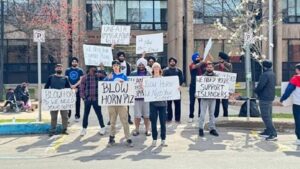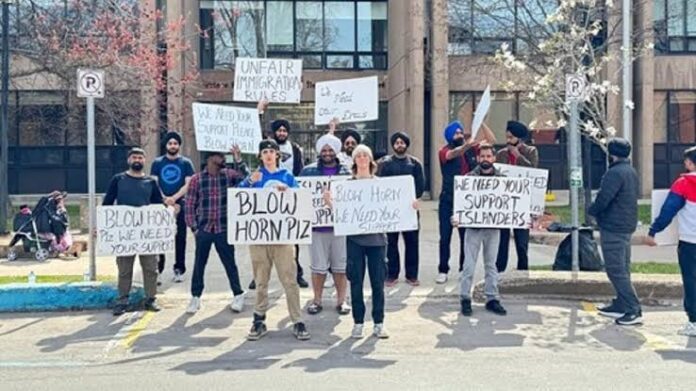Amid rising tensions, more than 70,000 international students in Canada, including many from Nigeria, face the looming threat of deportation as their work permits are set to expire at the end of this year. This alarming situation has triggered widespread protests across the country, particularly in provinces like Prince Edward Island, Ontario, Manitoba, and British Columbia.

The urgent figures come from representatives of the Naujawan Support Network, a student advocacy group. They emphasize that these students are not just educational participants; they make vital contributions to the Canadian economy, and many are now at risk due to recent governmental policy changes.
On Tuesday, the Trudeau administration announced tighter restrictions on temporary foreign workers, a move expected to affect the number of international student permits by 35% starting September 1, 2024. This policy is part of a broader move to limit immigration numbers, particularly in the wake of the pandemic. Adding to their plight, starting in September, international students will only be permitted to work off-campus for a maximum of 24 hours per week.
Students have taken to the streets, with protests currently underway outside legislative assemblies and in urban centers. In Prince Edward Island, demonstrators have set up encampments and have been protesting for over three months. They are expressing their concerns over new provincial policies that will reduce permanent residency nominations by 25%, which leaves many students feeling vulnerable and uncertain about their futures.
In conjunction with the federal policy shifts, international students in Brampton have also organized rallies, aiming to counteract narratives that blame them for local housing shortages and job market challenges. Advocacy groups, like the International Sikh Student Organization, contend that these issues stem from broader policy failures rather than the presence of international students.
The protests underline a desperate call to action; students and advocacy groups are urging the federal government to extend work permits and create clearer pathways to permanent residency. Their message is simple: they contribute significantly to Canada’s economy and deserve fair treatment.
Additionally, Prime Minister Trudeau’s recent announcement on reducing the share of temporary foreign workers in the low-wage stream has stirred further unrest. The proposed changes will drop the allowable percentage of temporary foreign workers from 20% to 10% of the total workforce for employers. This significant reduction compounds the challenges faced by international students and foreign workers, who are increasingly being eyed as scapegoats for the country’s economic issues.
Further complicating the situation, the government has also decided to halt the processing of applications from employers in regions with unemployment rates of 6% or higher. All these changes, which will become effective on September 26, 2024, are expected to only intensify the fears surrounding the futures of many international students and workers.
As the situation unfolds, it remains to be seen how the Canadian government will respond to these protests and the voices of those affected. The calls for policy reform and support for international students are growing louder, as many see these students as an integral part of the multicultural fabric that distinguishes Canada.




